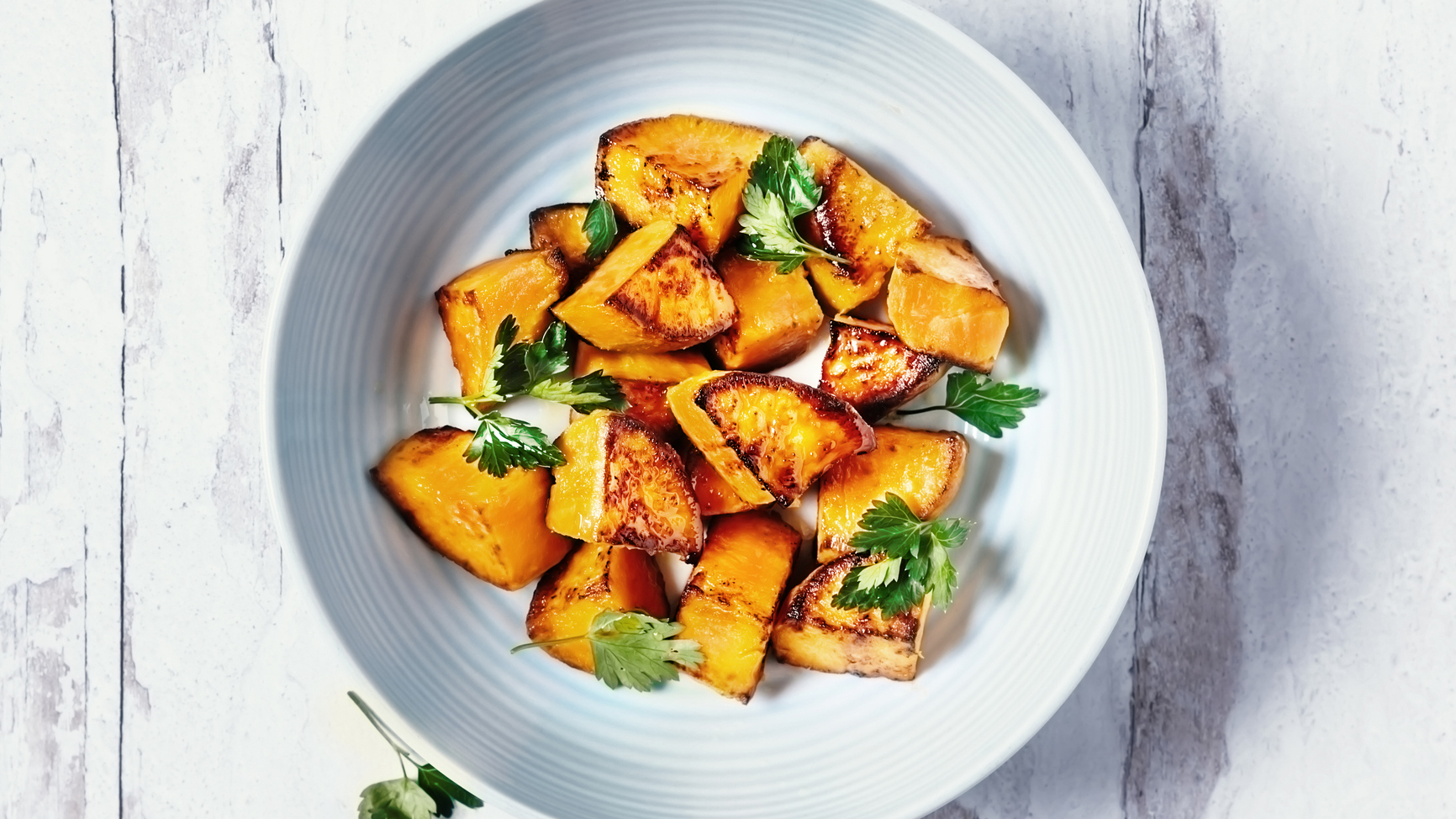Why potatoes can actually be good for you (even if you're on a weight loss diet)


Potatoes are generally considered to be bad for us. From potato chips to curly fries, mashed potatoes and gravy, it's easy to see why: potatoes are high on the glycaemic index, a nutritional rating system for food containing carbohydrates, they're full of starch, and they're often heavily doused in added fat and fried, roasted or mashed with milk or thick cream.
However, when they're prepared in a healthy way, they can be beneficial source of micronutrients. Researchers from the University of Oakland and University of Minnesota collected a lot of research on white potatoes, analysing their nutritional content and demonstrating there's more to the much-maligned potato than meets the eye.
Published in the journal Advanced Nutrition, the researchers write: "White potatoes have historically been a staple food for many cultures and continue to be an inexpensive nutrient source around the world. Unfortunately, the white potato has been labeled as a “food to avoid” because of inconsistent epidemiologic research showing that a “Western” dietary pattern, which included all white potatoes regardless of preparation method, was linked to weight gain and increased risk of type 2 diabetes.
"Consequently, the role of white potatoes in providing a low-cost source of critical nutrients, high-quality protein, and a satiating carbohydrate is ignored."
Carbohydrates aren't necessarily evil: carbs are converted into glucose, or blood sugar, which fuels you during the day and especially during your workouts. The problem with carbohydrate sources such as potatoes is that we eat too much – they're very energy-dense, and we eat more than we can burn off, so all that excess blood sugar inevitably causes us to gain weight. Of course, one way to combat this is to check out our portion size guide.
As well as carbohydrates, potatoes are sources of dietary fiber (promoting a healthy gut and regular bowel movements) and potassium (which improves the health of our muscles, decreases fluid retention and nervous system). These two have been designated as 'nutrients of concern' in the 2010 Dietary Guidelines for Americans, which is an indication most Americans don't eat enough fiber and potassium day-to-day. Potatoes also contain a surprising amount of vitamin C.

If you're looking to lose weight, healthy digestion is paramount, while decreasing water retention in your body can help you look less bloated. It's surprising news, but potatoes can actually benefit your weight loss, rather than contribute to it.
Get the Fit&Well Newsletter
Start your week with achievable workout ideas, health tips and wellbeing advice in your inbox.
The researchers write: "White potatoes are typically grouped with “other” or “starchy” vegetables in food guides, but these subgroups do not adequately describe the energy, vitamin, mineral, and phytochemical contributions that white potatoes make to the diet. Dietary guidance should continue to stress the need to moderate consumption of high-fat foods, and white potatoes prepared in a healthy way have an important role in a nutritious diet."
The key is in the way you consume potatoes. Chips? Fries? Rich, creamy mash? All three are loaded with added calories, fried in vegetable oil and prepared in such a way they stimulate the reward centre of our brains, encouraging us to keep eating. Baked white potatoes with the skin-on, when eaten in small amounts, are a great way to eat your favourite starchy snack.
If you're dead-set on eating them fried, prepare them in a healthier way with an air fryer. Air fryers use a fraction of the oil, and thus add a fraction of the calories, by combining it with hot air currents to fry the contents of the device evenly and quickly. Most air fryers are combo devices too, allowing you to bake, broil and slow-cook your favourite dinners. Check out our guide to the best air fryers for more.
Matt Evans is an experienced health and fitness journalist and is currently Fitness and Wellbeing Editor at TechRadar, covering all things exercise and nutrition on Fit&Well's tech-focused sister site. Matt originally discovered exercise through martial arts: he holds a black belt in Karate and remains a keen runner, gym-goer, and infrequent yogi. His top fitness tip? Stretch.
-
 I do these two things every day to stay fit and healthy, says the newest star trainer on Chris Hemsworth's fitness app
I do these two things every day to stay fit and healthy, says the newest star trainer on Chris Hemsworth's fitness appHere's how Centr's Korey Rowe trains for longevity
By Sam Rider Published
-
 I thought sports weren't for me, until I realised they're a game-changer for ticking off cardio
I thought sports weren't for me, until I realised they're a game-changer for ticking off cardioI swapped HIIT and running for tennis—and I've never felt better
By Alice Porter Published